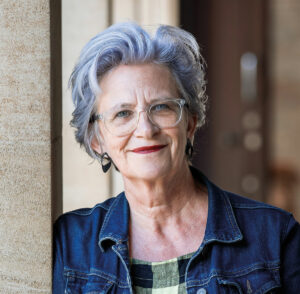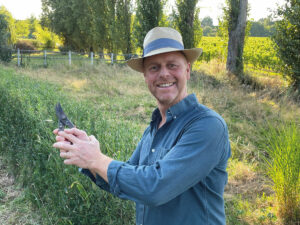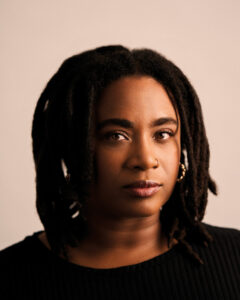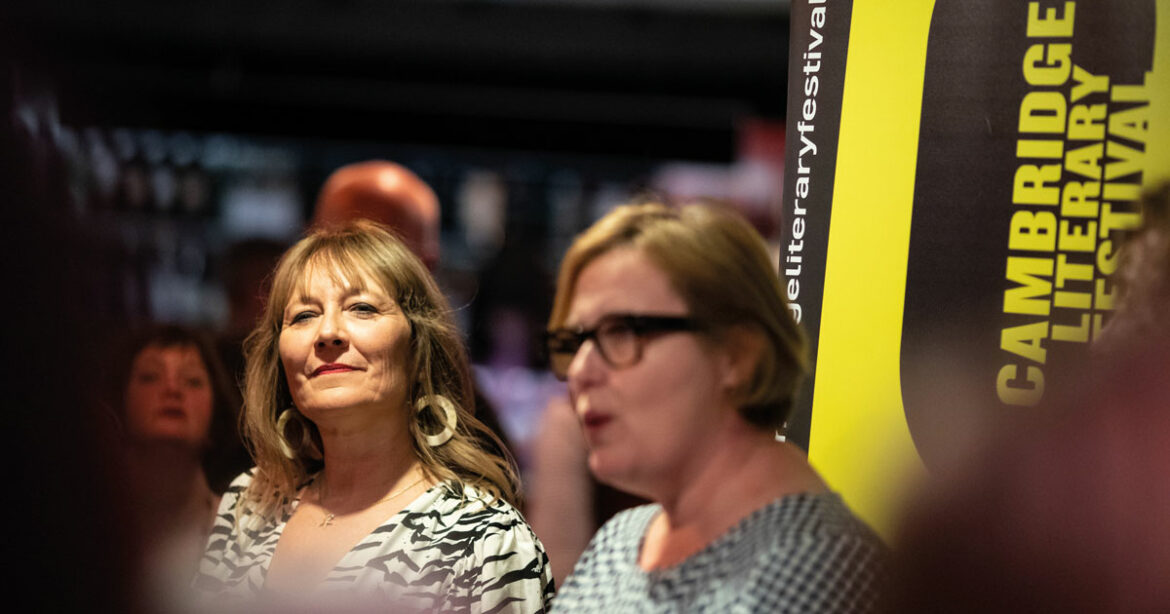Miriam Balanescu lands on the same page as this spring’s Cambridge Literary Festival authors
Now is a time when many turn a new leaf, as greenery shoots onto the trees and flowers come into bloom. Spring can often feel like a seasonal clean slate. Some of the authors gracing the stage at the Cambridge Literary Festival – the city’s foremost event in honour of the written word – will quite literally be moving on to the next chapter of their lives.
The biannual festival invites local, regional (and occasionally international) authors to share their recent work, host workshops or join panels. This year will see an immersive Earth Day event with author Christopher Lloyd, and a centenary celebration of Virginia Woolf with Susan Sellers and Maggie Humm. Expect speakers from across the spectrum, from Will Young to Ali Smith, and talks to tickle the literary fancy of bibliophiles of all ages.
The festival puts a marked effort into magnifying the voices of first-time authors: Kitty and Al Tait, Rebecca Birrell and Keiran Goddard are among those who will see their first pages in print this year.
Preach to the choir

Jo Browning Wroe © Martin Bond
Jo Browning Wroe, a Cambridge resident, has long drawn inspiration from the city’s surrounds. She first moved from Birmingham to study creative writing at the University of East Anglia, and has been a supervisor in the subject at Lucy Cavendish College, Cambridge, for nearly a decade.
While carrying out research for a separate project, she happened upon conference papers from 1966, detailing embalmers’ experiences of the tragedy at Aberfan – the mining-caused landslide that buried a junior school, with a death toll of 144. Her reading opened up a realm of possibilities. She rooted out the contact details for two of the embalmers present at the disaster and interviewed them. One had been 18 – just back from his honeymoon – when he was enlisted. “It made me wonder, what if somebody went to help, carrying their own sense of loss? How that would impact them?”
Choral music is a recurring motif throughout her debut, A Terrible Kindness, jumping between Cambridge and the Welsh valleys. “The men of Aberfan responded by forming a male voice choir, which has gone on to sing all over Europe,” says Jo. She decided her central character, William, would be both a Cambridge chorister and an embalmer, closely basing the novel on accounts she was given by former choirboys in the 50s and 60s.
“The bit I put off, which I knew I had to do, was to watch an embalming,” Jo says. “But, it meant I got to know a current embalmer, who taught me very openly about the price people like him pay daily, facing the very thing the rest of us spend time avoiding. That opened up the sense of humanity behind people who do jobs like that.”
Growing up in a crematorium – where Jo and her family would watch funerals proceed past the kitchen window every 20 minutes – was another influence, albeit a subconscious one. She credits the experience with allowing her to speak to embalmers with ease, and imbuing William’s day job with familiarity. “What growing up in the crematorium taught me was the inevitability of death – that it happens all the time. It doesn’t prepare you for the shock of losing someone yourself, but it makes me able to talk about things and be aware of the physical elements – what’s involved when someone dies and what has to happen.” Far from morbid, however, Jo’s novel is steeped in love, gentleness and hope.
With A Terrible Kindness – one of The Observer’s top 10 debut novels of 2022 and already translated into multiple languages – done and dusted, a full draft of her next novel is at the ready. She is a stickler for routine; two hours are spent writing every day for six days a week, submerged in the imagined worlds of her books.
You get a buzz and feel like part of the community
Immersed in the writing scene at Cambridge, she runs workshops for students of any discipline at Lucy Cavendish College, a residential course with fellow writer Miranda Doyle, and teaches at Hills Road College and the Institute of Continuing Education. “I’ve met so many wonderful writers and you get fed by that. You get a buzz and feel like part of the community.”
Soil and strife

Joe Swift
Joe Swift is likely to be a familiar face. With 24 years of presenting Gardener’s World, nine books and a bespoke design company called Modular under his belt, this year sees five comprehensive guides published by the gardening great. As lockdown crept in, the importance of gardening for physical and mental health – and the benefits for wildlife – hit home for Joe.
“Normally, in spring and summer, I’m zooming around the country doing shows. Suddenly, we weren’t allowed to go anywhere at all,” Joe says. “I’ve got a very small outside space in London, and it changed the way I garden at home. It was very different. I’ve been doing Chelsea Flower Show for 22 years, and it was quite nice having a little break from that, but the phone didn’t stop ringing, because everyone else was getting into gardening!”
Joe brings 40 years of horticultural knowledge to bear on these five slim books, which pack in all the essentials for cultivating small, indoor, edible, nature or modern gardens – with tailored tips for each. “The idea was to try to blend inspiration with a practical approach,” he explains. “There’s a mystique to it – all the Latin names and complexities – but the thing to do is just start, see where you end up on the journey and learn with time, as all gardeners do.”
Although a seriously seasoned horticulturalist, Joe insists there is always more to take in. During his research, he painstakingly explored the right conditions for the propagation of indoor plants, feeds for specific birds and how to encourage bees and biodiversity. These gardening guides approach the subject from all angles, from the view of your garden through the kitchen window, to creating hedgehog holes in fences.
With such a treasure trove of knowledge, Joe had to cut down to the quick of what’s relevant. He did this by putting himself in new gardeners’ shoes: something, having helped with designing thousands of spaces, he is no stranger to.
Though each guide handles one garden type, breaking advice down into accessible, bite-sized chunks, they all intertwine. “The lovely thing is that you can go in so many different directions,” Joe says. “It’s not one or the other. These themes and narratives layer up nicely in any outdoor space.”
As a weekly columnist for The Times and Radio Times, Joe’s writing is part and parcel of his life. This time, however, he had to be cut-throat, excising any flowery language. “I used to struggle with writing. But being on TV, and having a voice people recognise with your personality, now means I can use that voice as if I’m talking,” says Joe.
It seemed the pastime was blooming like never before, as seeds and kit were quickly snapped up by novices in the first lockdown – but Joe believes gardening has merely been reinvigorated. “One of the things I’ve loved about gardening is that it has always crossed every barrier: age, gender, background, race. But I’m not sure it’s always been reflected in that way. There’s not so much a new market, people are just really appreciating it again.”
Joe’s outlook has changed, however: “I think we’re more relaxed about the way we want gardens to look and function, which is much better for wildlife. We’re not worried about decaying plants. In fact, we embrace the beauty of them. We don’t tidy up the minute a leaf falls.”
In flight

Ayanna Lloyd Banwo © Penguin Books
Another debut novelist at this spring’s Literary Festival has written about those whose careers entail dealing with death. Ayanna Lloyd Banwo’s When We Were Birds charts the life of gravedigger Darwin, who has freshly disembarked in Port Angeles. Meanwhile, Yejide is soon to inherit a supernatural ability upon her mother’s death. The women of her family, descended from the vulture-like corbeau, are able to speak to the deceased.
Ayanna herself was in a period of grieving, spending time in cemeteries, when the inspiration for the novel struck. “I was thinking about the bureaucratic, real-world nature of death; the paperwork, certificates and wills – and that intense, liminal space that grief produces, which is intensely spiritual and psychological.”
Her debut began life as a short story written in 2017, when she arrived at the University of East Anglia for her creative writing masters, deciding to ‘strip it for parts’ and turn it into a novel.
One of its defining elements is magic realism; her imagined Trinidad is one of dense, enchanted forests and scorching, unfathomable city streets. “Trinidad is a magical place,” says Ayanna. “It sounds cliche to think of islands as magical, but mythology is present in our oral, musical and literary traditions, drawn from our African, Indian and European ancestors. It’s a mixed, cosmopolitan place. Mythology and folklore are the bedrock of a lot of our cultural traditions.”
Ayanna’s author’s note reads: “The island of Trinidad is real. The geography, characters and places in this novel are fiction.” This allows her permission to stretch and distort its landscape. “The story and characters required the widest scope. I needed to take the essence of the city, but turn the volume up, make it more complicated, make mountains closer.” The note doubles as a jibe about Trinidad and its oft-commented-on surrealism. “A lot of Trinidadians who read the book know exactly what I’m talking about. This place that might be someone’s vacation spot, or exotic, is – for us – very real.”
Written during lockdown from Norwich, Ayanna’s transformed Trinidad is also the result of being a long way from home. Reminiscing about the mythology she was told as a child, research took her towards the corbeau, birds that consume the dead, as well as burial practices. “If anybody looked at my Google search history, they would be very concerned.”
In the vein of other recent novels by female writers, Ayanna is concerned with matrilineage. Caribbean society, she explains, is matrifocal, with grandmothers and mothers taking central place. On her contemporaries, she suggests: “We are living in a time where we’re thinking of gender roles differently, about how we are gendered and these roles get passed down. We’re thinking about how women experience or make history, rather than just men.”
Ayanna’s exploration of the subject is intensely personal; as a child, her grandmother would recount endless stories of her forebears. “I knew five generations of my family intimately through accounts. They are all buried in the same cemetery, the same few plots.”
Continuing to study creative writing at UEA, Ayanna is neck-deep in her next novel, as well as a thriving writing community. “There are so many other authors whose books are going to come out in the years to come – and we all sat in the same classes, workshops and pubs.”
Cambridge Literary Festival takes place 20-24 April. Visit the website for more information and to book tickets.

